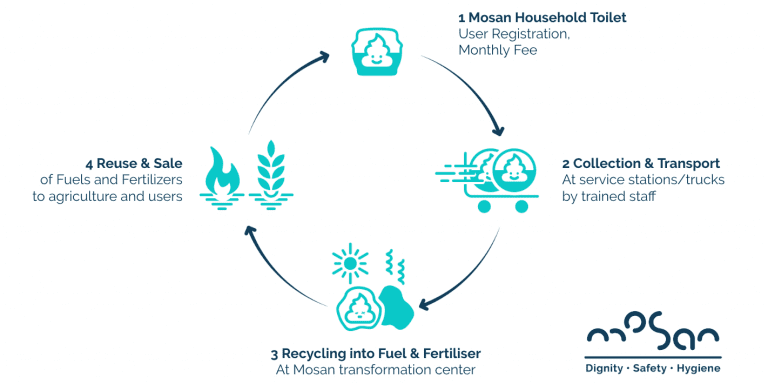The Kochia Chronicles, just released by Prof. Khanjan Mehta at Penn State, is a book about a district in Western Kenya. Or, to put it in a different view, it’s a set of stories that could be set in many places, and show the cultural context that is often overlooked by people — engineers, donors, well-intentioned organizations and so on — doing international development work, and elucidating real barriers to changes that might improve quality of life. It is an amalgamation of the author’s experiences and research, blended and fictionalized, and it is excellent. The book could easily be labeled as required reading for anyone that reads about, donates, or works on issues of poverty, the ill-defined ‘sustainable development’, and more.
There are 9 stories, each focusing on a specific event and a specific issue. The issues range from the well-known HIV/AIDS epidemic to the less common complexities of how orphanages are run, or the prevalence of cheap knockoffs of electronic goods. The stories share a cast of characters, but each stands alone as its own tale. In part because of the narrative style, the book is a smooth read despite presenting complex and important issues.
An example: it turns out (TIL) that traditional Kenyan funerals are very expensive — transporting the body, hosting many ceremonies, and the expectation of feeding many guests. One of the frequent characters‘ fathers dies (not a spoiler, I promise), and the story of planning his funeral becomes a vehicle for discussing the barriers to change imposed by social norms and traditions, even if current practices send families deep into debt. The story concludes with another one of the recurring characters starting a successful new business as a vehicle to affect change. A complex topic that I’d never heard about before — blending sociology, religion, and day-to-day economics — woven into an easily consumed 30-page story.
The stories were written as a teaching tool, and that occasionally shows in the language, or the amount of exposition. While sometimes the stories feel like they could have been narrated by the Kenyan characters, there are points where the language shifts to include terms like ‘socioeconomic status’ or statistics that I couldn’t see these characters describing off-the-cuff. That’s not an issue for me – as someone that loves science fiction as a way of exploring different worlds, exposition is a key piece of the picture (see: Anathem), and as a teaching tool, that more academic context is important. For the benefit of others who may not share my taste in literature, the focus intentionally stays on the narrative side of things. For a class that discusses any of these issues, the relevant story would provide a fantastic counterpoint to media on the issue from a macro-scale ‘Western’ media source.
One final aspect that may be more relevant to those directly involved in international development projects are the stories that bookend the Chronicles. These have a lot to say about a local viewpoint on the projects that we do, the timescales we do them on, and differences in norms that reduce the benefits we provide — or even create harms. As someone who’s wondered about these issues (and trusts the author’s experiences), having that other perspective laid out as stories told while sitting around a communal drink answered a question that I might never get to ask, and might never receive an honest answer. I’d encourage anyone working internationally, or thinking about doing so, to browse through these two stories and think about the project you’re pursuing. We can have a good impact, but not without consideration of the society we’re affecting, which often has different values than our own. Innovation doesn’t always mean “new.”
The Kochia Chronicles, in the authors’ words, aims to enable readers — particularly well-intentioned and passionate students — to empathize with the daily and cultural struggles of the people many of them are eager to help. In my opinion, the book hits its mark in an excellent way. It is fun to read, interesting to contemplate, and well worth picking up. There will be two more sets of stories in the Chronicles over the next year or two, and I look forward to reading those as well. In the meantime, I foresee using one or two of these stories for in-class discussions for my upcoming class in Social Entrepreneurship, and I recommend them to Engineers for a Sustainable World chapters that we work with and others who are debating the best way to approach a community’s needs.
Khanjan Mehta’s synopsis
The following is excerpted from Khanjan Mehta’s book page, The Kochia Chronincles. Kochia, a sleepy community on the shores of Lake Victoria in Western Kenya, is caught in the turmoil among traditional ways of life, excitement brought about by development projects and the throes of relentless globalization. Cellphones are spreading HIV and funerals are killing people. Cows are drowning in enormous holes dug by white people. Girls are dropping out of school and children are being rented to orphanages. Crusades and miracle services are blurring the lines between religion and crime. Along with the rapidly declining fish population in the lake, the time to ‘teach people how to fish’ has passed. It is time for direct and decisive action. Obongo, Okello, Sister Phoebe and friends unravel the complexities of community challenges and design practical solutions to address them. From cardboard coffins to toothbrush currencies and professional praising services, the solutions are simple, frugal and ingenious. The Kochia Chronicles take readers headlong into the lives and adventures of people in this quintessential African village as they usher in an era of design, innovation and entrepreneurship.
The Kochia Chronicles owe their genesis to the author’s experiences in conducting research and advancing technology-based social ventures in East Africa over the past decade. They draw heavily from the vast literature on development studies and the work of several innovators and entrepreneurs. The stories weave a compelling web of concepts, approaches, facts, statistics, norms, musings, emotions…and full-page illustrations to help readers empathize with the people, their context, and their choices. The Kochia Chronicles are fictitious narratives that bring to life the paradoxical simplicity and complexity of development challenges with the objective of informing and inspiring innovation that leads to the self-determined improvement of lives and livelihoods.
This book is the first part of a three-part series of short stories with the same characters and backdrop. The second set of stories focuses on engineering design and business strategy issues while the third set focuses on community health challenges, mHealth and telemedicine systems.
Related resources
Chubby Cheeks: Telemedicine for rural East Africans
Cheap, digital medical devices could make long-distance health care a reality in rural East Africa.
An inside look at a new documentary on extremely affordable design
Filmmaker Ralph King showcases three prototypes appropriate for developing countries and pilots film-driven education in grade schools.
The Spark documentary celebrates two visionary American farmers
A new documentary links the work of two change makers in two very different parts of America.

